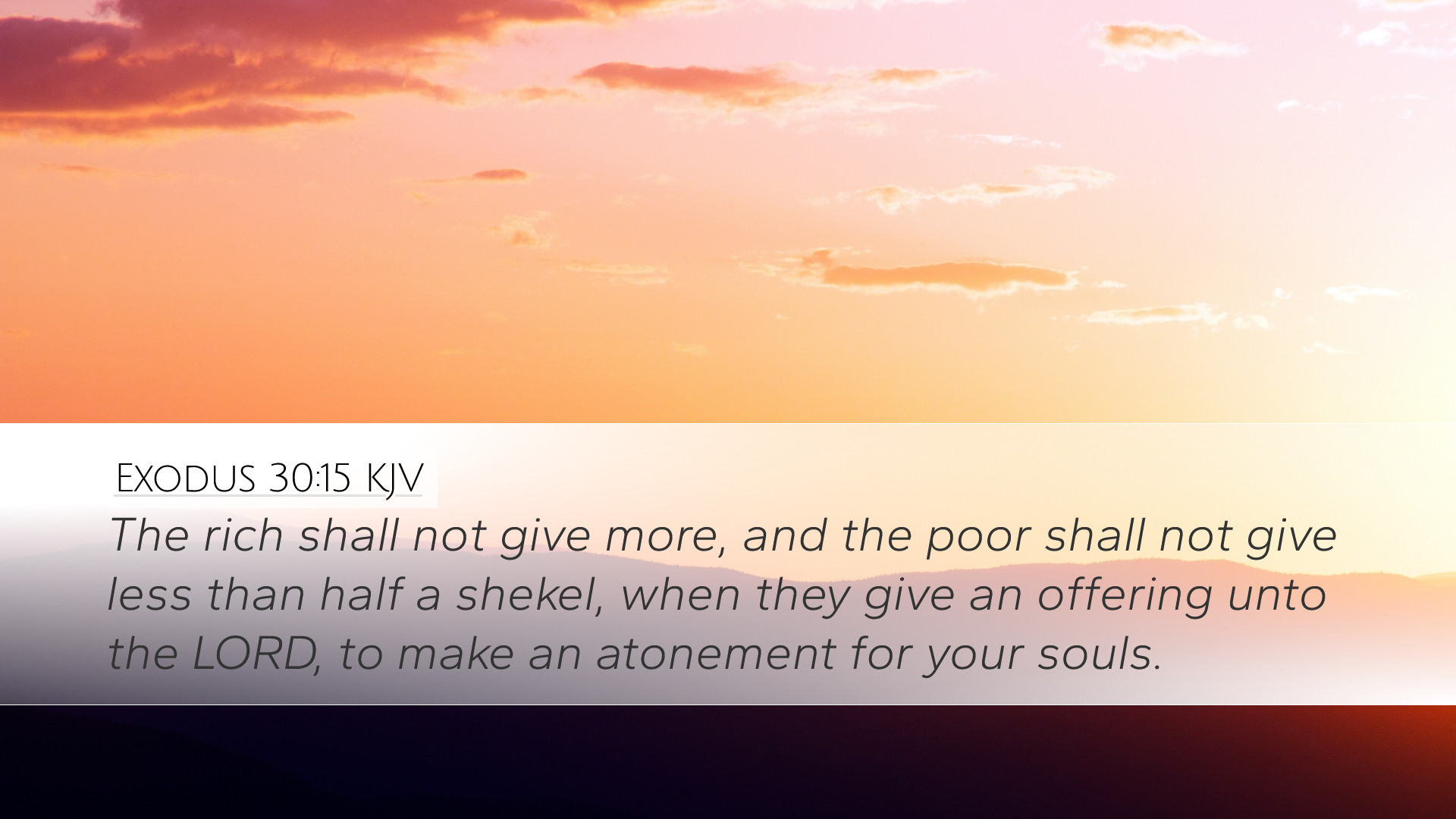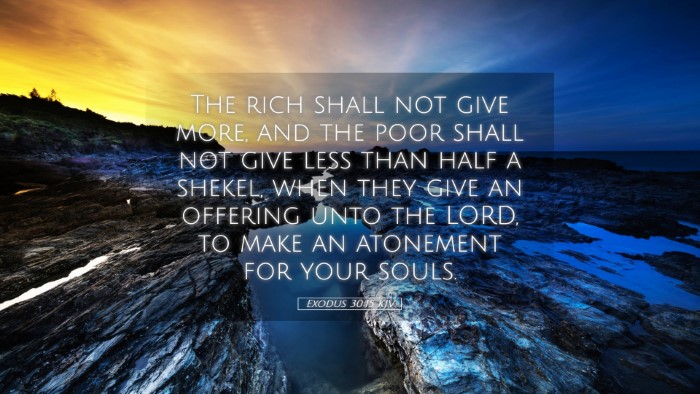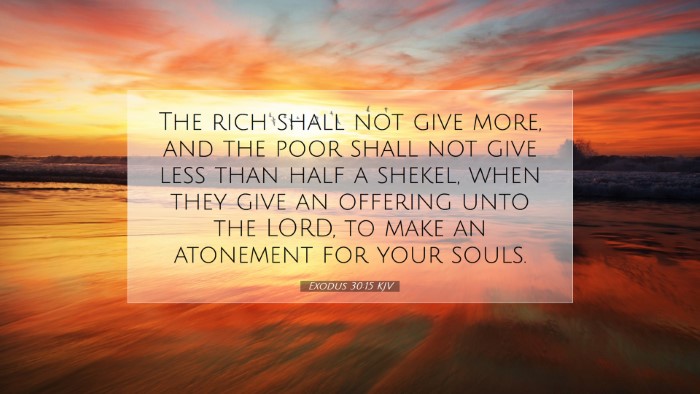Commentary on Exodus 30:15
Verse Text: “The rich shall not give more, and the poor shall not give less than half a shekel, when they give an offering to the Lord, to make atonement for your souls.” (Exodus 30:15, ESV)
Introduction
Exodus 30:15 is part of God's directives concerning the tabernacle and its service. This command regarding the atonement money reflects profound theological insights about equality before God. Understanding this verse requires a careful examination of both its cultural context and its spiritual implications.
Historical Context
Matthew Henry’s Commentary: In the context of ancient Israel, the half shekel was a form of tribute to the sanctuary that all males over the age of twenty were obliged to pay. This tradition served not only a practical purpose of funding the tabernacle’s activities but also emphasized the corporate identity of Israel as a people under covenant with God.
Theological Insights
Albert Barnes’ Analysis: Barnes emphasizes that the command to give the same amount, regardless of one's wealth, speaks to the equality of all individuals before God. Rich and poor alike are equally in need of atonement; thus, monetary status does not affect one’s standing in spiritual matters. This underlines a profound truth of the faith, that all humanity stands in need of God’s mercy.
Equality in Offering
Adam Clarke's Commentary: Clarke elucidates that the uniformity in the contribution signifies God’s valuation of every individual. No amount of worldly wealth can elevate a person's position in God's eyes, nor can poverty diminish one's worth. Each individual's contribution symbolizes his or her acknowledgment of God’s sovereignty and grace.
Implications for Community
- Unity in Diversity: The requirement for equal giving fosters a sense of unity among the Israelites. It signifies that within the body of believers, every individual has intrinsic worth, and their contributions are vital for the communal spiritual health.
- Collective Atonement: The offering made by each person, irrespective of wealth, serves as a reminder of their shared need for atonement and salvation. This reinforces the community's collective responsibility toward maintaining a right relationship with God.
The Role of Atonement
The inclusion of atonement in the offering touches upon significant themes within Scripture. Atonement is a central element of the biblical narrative, pointing toward Jesus Christ, who ultimately fulfills the requirement of atonement through His sacrifice.
Christological Reflection
Matthew Henry suggests: The half shekel offering foreshadows the ultimate sacrifice of Christ, whose death provides atonement for all humanity. Just as the Israelites were called to present their offering, Christians today are reminded to present themselves as living sacrifices, acknowledging their reliance on Christ’s finished work.
Practical Applications
For pastors and theologians, Exodus 30:15 invites reflection on how we, as a modern community of believers, can embrace the principles of generosity and equality in our practice of stewardship.
- Encouraging Generosity: Church leaders are called to promote a culture where giving is not based on pressure or societal expectations but on a response to God’s grace.
- Equitable Ministries: The principle that both rich and poor are treated equally should inform church programs aimed at supporting all congregants. Resources should be allocated in ways that foster equality, reflecting the biblical model.
Conclusion
Exodus 30:15 serves as a powerful reminder of the unity, equality, and atonement at the core of the faith. The half shekel offering transcends time, reminding believers today of their collective need for grace and the boundless love of God. As we reflect on this verse, may we be inspired to embody the truths contained within it, cultivating communities that mirror the heart of God in both worship and service.


